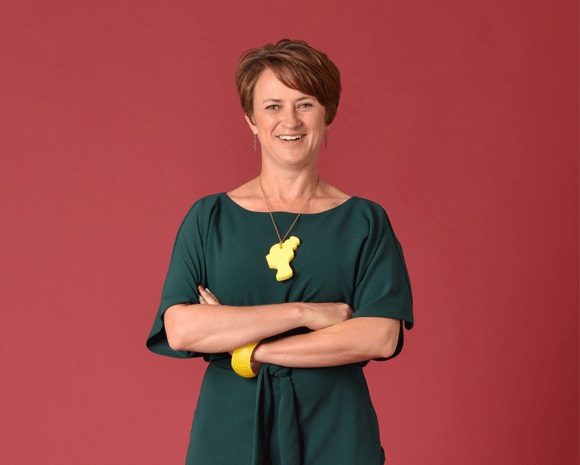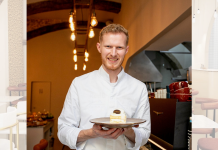Do you have a creative genius lurking within? Creativity expert Lien Potgieter says the answer is yes.
Robots may be able to think faster than we do – but they can’t generate thoughts that reverberate with colour or soar with feeling. That’s why creativity is one of the most highly valued traits in the workplace of the future, according to creative consultant Lien Potgieter of Lien Potgieter Creativity Consultancy. It’s why she’s determined to help left-brainers start thinking less linearly.
The problem, according to Lien, is that mere mention of the word ‘creativity’ conjures up a host of stereotypes. Many of these seem at odds with people who feel they wouldn’t look good in a kaftan, don’t like the smell of incense, or have no interest in trying to paint a nude. In fact, she says, creativity encompasses far more than the activities traditionally associated with it, like singing, dancing, drawing and writing. ‘If you have a knack for mediation and resolving conflict, that’s creative. So too, is the ability to make someone feel empowered and inspired, being an amazing athlete, feeling curious, cooking something fabulous or making a house feel like a home.’
Lien believes everyone is creative. The problem is, we often don’t recognise this quality in ourselves, because we tend to take for granted the things we’re good at – which is often where our creativity lies.
While it may feel challenging to uncover our own creativity, it’s important that we do so. Lien cites a report by the World Economic Forum, which describes creativity as one of the top 10 workplace skills of the future.
How can you uncover your own secret source? Lien’s starting point is basic self-care. ‘If you don’t eat well, sleep well and exercise, you won’t have the energy or fuel to think creatively,’ she maintains. Self-care also takes into account factors which have a more subtle effect on your well-being, such as temperature and fragrance.
Once your physical well-being has been taken care of, it’s time to move on to emotional well-being. ‘People always think of artists as tortured souls, but you’re more likely to think clearly, keep an open mind and remain receptive to new ideas if you’re in a good mood,’ Lien explains.
The next step in the process involves focusing on critical thinking. ‘This phase is largely about seeing and observing. Sometimes, you need to take a break from what you’re doing to be able to do so. If you overanalyse, the answers may be slow to come – but if you allow yourself to daydream, you’d be surprised at what floods into your mind.’
This may lead to learning new things, a process Lien links to empathy and compassion. ‘Love is about being able to see the heart in all things,’ she comments. She equates this part in the quest to cultivate creativity with openness and making space for appreciating fresh ideas.
Although Lien’s definition of creativity goes well beyond traditionally creative pursuits, it by no means excludes them. She encourages people embarking on this pursuit to take part in, or at least watch and enjoy, art forms like opera and drama. Again, she draws attention to the creativity that’s present in everyday interactions, from the well-worded email to a colleague to the small act of kindness that brightens a stranger’s day. Either way, what’s important is that you’re expressing what’s inside you.
Another way to harness this essential quality is by listening to your intuition. Once a quality easily dismissed in the workplace, it’s slowly creeping to the fore, thanks to support from the likes of Steve Jobs. Linked to this inner voice is your vision for your inner life – but unfortunately, neither is likely to flourish in a hostile environment, which is why kindness in the workplace is crucial if we are to nurture a culture of creativity.
Lien’s final tip – daydream. Many of us guard against ‘the dwaal’ because we prefer the certainty of real life. Google has made it possible for us to avoid surprises – we can even choose what to order at a restaurant hours before making a reservation – and the safety of this world of assuredness is attractive during a time of flux. The problem with this mindset is that creativity thrives on spontaneity and being in the moment – which is why daydreaming is so important.
Put these steps together – and you have a recipe for a skill that could well future-proof your career. Details: lienpotgieter.co.za
Easy ways to cultivate your creativity
• Rearrange your desk or work space.
• Sit quietly in a public place. Watch the people around you interacting. Imagine their conversations; think of what their lives are like and what they might be talking about.
• Spark your curiosity. Find something in your world to research, then find out more about it. It needn’t be anything complex – even learning extra facts about a tree in your garden will get you thinking in a new way.
• Find synonyms for your favourite words, or look up words you don’t understand.






